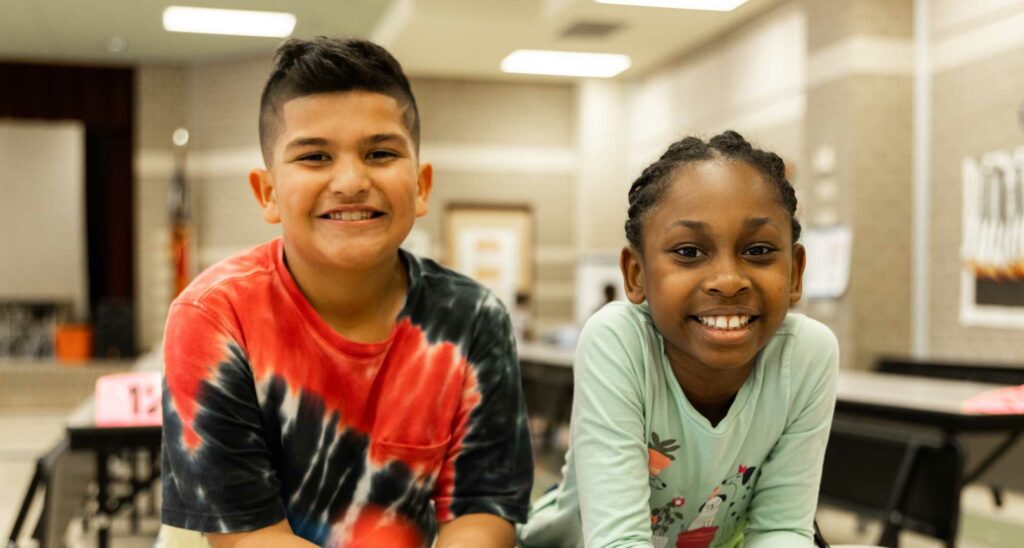Empowering Kids: A How-To Guide for Emotional Intelligence
Empower kids by nurturing emotional intelligence – an essential skill for handling life’s ups and downs, fostering strong connections, and mastering problem-solving. Benefits include improved academic success, better relationships, and enhanced conflict resolution. Build empathy through role-playing and storytelling, cultivate self-awareness with mindfulness and journaling, and nurture resilience by acknowledging efforts. Encourage problem-solving, emotional regulation, and healthy relationships to equip children for life’s challenges. Teaching resolution techniques, trust-building, and boundary-setting further enhance their growth. Give kids the tools for success in managing emotions and relationships.
Key Takeaways
- Teach problem-solving skills through challenges and creative thinking.
- Cultivate empathy with role-playing, storytelling, and community service.
- Practice emotional regulation with deep breathing and positive affirmations.
- Foster self-awareness through reflection, journaling, and gratitude exercises.
- Promote healthy relationships with effective communication and active listening.
Benefits of Emotional Intelligence

Understanding and developing emotional intelligence can lead to a more fulfilling and harmonious life. By honing these skills, you pave the way for numerous benefits across various aspects of your life.
Concerning academic success, emotional intelligence can help you manage stress, stay focused, and communicate effectively with teachers and peers. These abilities not only improve your academic performance but also foster a positive learning environment.
Social connections are another area greatly impacted by emotional intelligence. Being attuned to your emotions and those of others can enhance your relationships, making interactions more meaningful and genuine. This skill can help you navigate social situations with ease and build strong, lasting connections.
Moreover, emotional intelligence plays an essential role in mental health and conflict resolution. Understanding your emotions can lead to better self-regulation, reducing anxiety and improving overall well-being. When conflicts arise, having a high emotional intelligence level enables you to approach disagreements with empathy and understanding, ultimately fostering peaceful resolutions.
Building Empathy Skills
To enhance your emotional intelligence further, focus on developing your empathy skills, which are key to fostering deeper connections and understanding in your relationships.
Empathy involves understanding others’ feelings and perspectives, allowing you to connect with them on a more profound level. One effective way to build empathy is through role-playing exercises, where you can put yourself in someone else’s shoes and see situations from their point of view.
Storytelling activities can also help enhance your empathy by immersing you in different narratives and emotional experiences.
Engaging in community service not only benefits others but also allows you to develop a deeper sense of compassion and empathy towards those in need.
Additionally, participating in group discussions can provide insight into diverse opinions and experiences, broadening your understanding of different perspectives and emotions.
Cultivating Self-Awareness
Hey there, it’s time to focus on cultivating self-awareness in kids.
By practicing mindful self-reflection, children can better understand their thoughts and feelings.
Recognizing and labeling emotions is an essential step in helping them navigate their inner world with confidence.

Mindful Self-Reflection Practices
Developing mindful self-reflection practices can greatly enhance your ability to cultivate self-awareness and deepen your understanding of your own emotions and reactions. By incorporating journal prompts, guided meditations, breathing exercises, and gratitude practices into your daily routine, you create space for introspection and emotional growth.
Journal prompts serve as a tool for self-exploration, prompting you to explore your thoughts and feelings.
Guided meditations help you focus inward, becoming more attuned to your emotions and bodily sensations.
Breathing exercises not only calm your mind but also connect you to the present moment, allowing for a deeper understanding of your current emotional state.
Additionally, practicing gratitude fosters a positive outlook and helps you recognize the good in your life.
Through these practices, you develop a stronger sense of self-awareness, enabling you to navigate your emotions more effectively and respond thoughtfully to challenging situations.
Recognizing and Labeling Emotions
Exploring your inner world through recognizing and labeling your emotions is an essential way to enhance your self-awareness and emotional intelligence. Developing an emotional vocabulary is like adding colors to a black-and-white picture; it helps you express yourself more clearly.
Identifying feelings such as joy, sadness, anger, or fear is the first step towards understanding your emotional landscape.
Understanding expressions is another crucial aspect of emotion recognition. Pay attention to facial cues, body language, and tone of voice, as they often provide clues about what someone is feeling. Practice mirroring these expressions to deepen your empathy and connection with others.
As you navigate the intricate world of emotions, remember that it’s okay to feel a wide range of feelings. Embrace each emotion as a valuable piece of information about yourself and your surroundings.
Nurturing Resilience in Kids
Fostering resilience in children is a crucial aspect of their emotional development, equipping them with the tools to navigate life’s challenges with strength and adaptability.
Building confidence in kids starts by acknowledging their efforts and praising their progress, fostering a sense of self-belief that can help them bounce back from setbacks. Encouraging positivity through constructive feedback and highlighting their strengths cultivates a mindset that sees obstacles as opportunities for growth rather than insurmountable barriers.
Resilience in children thrives when they feel supported and understood, creating a safe space for them to express their emotions and work through difficulties. Teaching kids coping strategies like deep breathing exercises or journaling can provide them with practical tools to manage stress and build resilience in the face of adversity.
Enhancing Problem-Solving Abilities

Building your child’s problem-solving abilities requires nurturing their critical thinking skills and fostering a mindset that embraces challenges as opportunities for growth. Critical thinking involves analyzing situations, considering different perspectives, and making informed decisions.
Encourage your child to think creatively and explore various solutions to problems they encounter.
To enhance decision-making skills, provide opportunities for your child to make choices and face the consequences, allowing them to learn from their experiences. Help them break down complex problems into smaller, more manageable parts, teaching them how to approach challenges systematically.
By guiding your child through the decision-making process, you can empower them to make thoughtful choices independently.
Model effective problem-solving strategies yourself, demonstrating how to remain calm and focused when confronted with difficulties. Celebrate your child’s successes and encourage them to learn from setbacks, emphasizing that mistakes are valuable learning opportunities.
Practicing Emotional Regulation
To help your child develop their emotional intelligence, it’s important to practice techniques for regulating their emotions effectively.
One powerful method is deep breathing. Encourage your child to take slow, deep breaths when they’re feeling overwhelmed or upset. Deep breathing can help calm their nervous system and bring a sense of relaxation.
Additionally, teaching your child to use positive affirmations can be incredibly beneficial. Encourage them to repeat positive statements to themselves, such as ‘I am strong’ or ‘I can handle this.’ Positive affirmations help shift their mindset towards a more optimistic and resilient outlook.
Promoting Healthy Relationships

Developing healthy relationships with others is essential for your child’s emotional well-being and overall growth. To promote these positive connections, it’s important to focus on effective communication strategies. Encourage your child to express their thoughts and feelings openly while also teaching them to listen actively to others. By fostering good communication skills early on, you help your child build strong and lasting relationships.
Additionally, teaching conflict resolution techniques is essential in maintaining healthy relationships. Show your child how to resolve disagreements peacefully and find solutions that work for everyone involved. This skill will serve them well in all areas of life.
Building trust is another key aspect of healthy relationships. Encourage honesty and reliability in your child’s interactions with others. Help them understand the importance of trust and how it forms the foundation of strong relationships.
Lastly, setting boundaries is crucial for maintaining healthy relationships. Teach your child to respect their own boundaries and those of others, creating a safe and respectful environment for all parties involved. By instilling these values early on, you empower your child to cultivate meaningful and fulfilling relationships throughout their life.
Frequently Asked Questions
How Can Parents Model Emotional Intelligence for Their Children?
You can model emotional intelligence for your children by engaging in role-playing scenarios and having open family discussions about feelings and how to handle them. Show empathy, active listening, and problem-solving skills to guide them effectively.
Are There Any Age-Appropriate Resources for Teaching Empathy?
You’ll find age-appropriate resources for teaching empathy in children’s books, role-playing exercises, and social skills workshops. Engaging in empathy-building activities together can help your child understand and develop this important skill.
Can Self-Awareness Be Developed in Children With Adhd?
Yes, self-awareness can be developed in children with ADHD through coping mechanisms, therapy options like behavioral therapy, and mindfulness techniques. These tools can help them recognize and understand their thoughts, emotions, and behaviors.
What Strategies Help Kids Bounce Back From Failure?
To help kids bounce back from failure, focus on resilience building. Encourage a growth mindset and teach coping skills. Practice positive self-talk to boost confidence. Remember, setbacks are opportunities for growth. You’ve got this!
How Can Problem-Solving Skills Be Integrated Into Everyday Activities?
To boost problem-solving skills in daily life, try infusing critical thinking into activities like cooking or puzzles. Encourage brainstorming for creative solutions to obstacles. By practicing these skills together, you’ll foster resilience and adaptability in your child.
Conclusion
Congratulations on taking the first step towards empowering your kids with emotional intelligence!
By building empathy, self-awareness, resilience, problem-solving abilities, emotional regulation, and healthy relationships, you’re setting them up for success in all areas of their lives.
Keep practicing these skills and providing a supportive environment for your children to grow and thrive emotionally.
Remember, emotional intelligence is a valuable tool that will benefit them for a lifetime.
Keep up the great work!

Hey there! 👋 I’m a proud mom and passionate writer, sharing my parenting journey. 📝 Join me as I navigate the ups and downs of motherhood, offering tips, advice, and a sprinkle of humor along the way. 🌟







